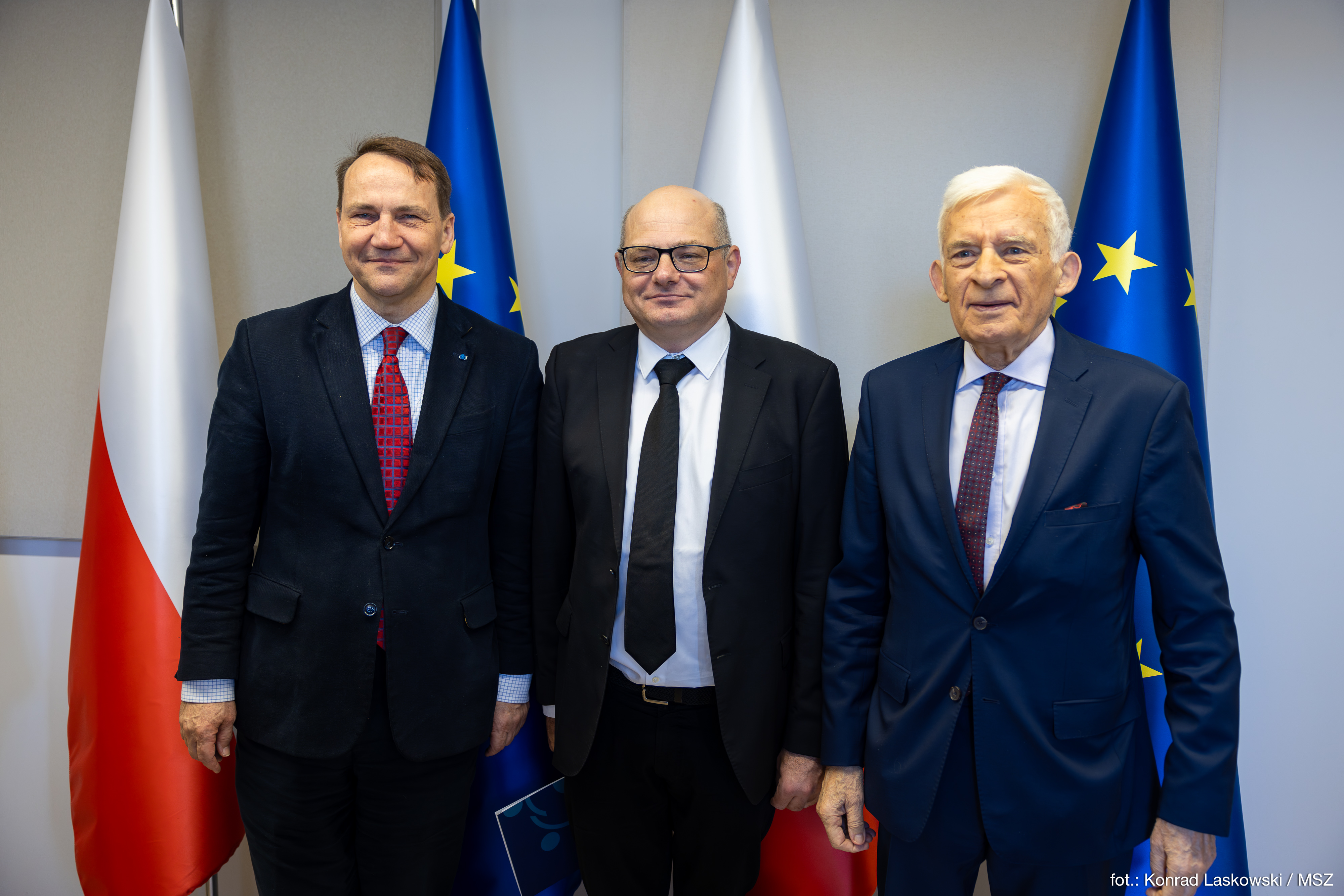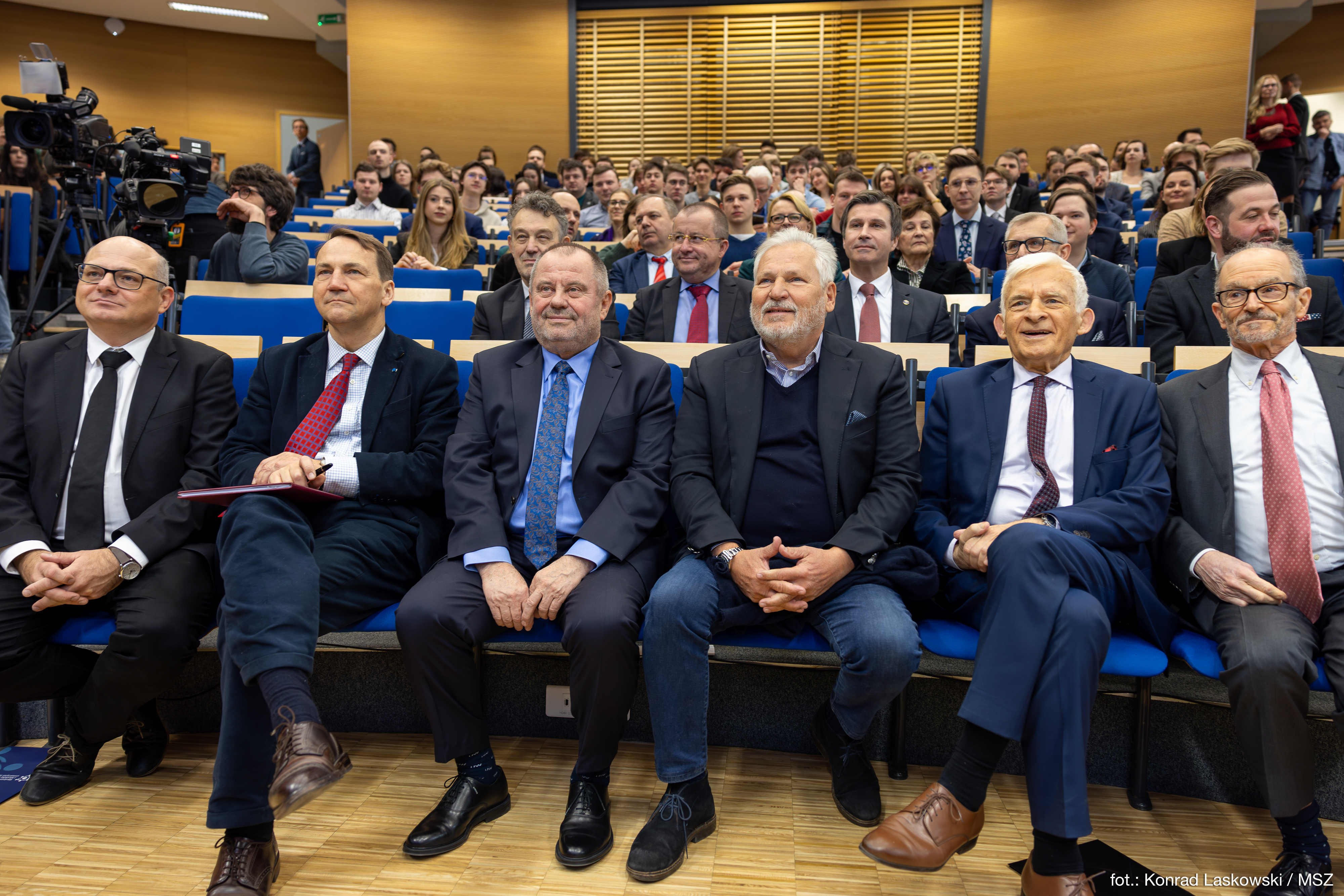Minister Sikorski speaks at the University of Warsaw about the future of European defence
08.03.2024
“The modernisation of European defence obviously should not take place to the detriment of engagement in NATO. By strengthening the defence dimension of the European Union, which is an inevitable thing to do, we are not by any means looking to undermine NATO’s unique role for Poland and the entire system of European security,” the head of Polish diplomacy emphasised at today’s conference “Poland’s 25 Years in NATO. What if there was no Alliance...”. Hosted by the University of Warsaw, the event was held in connection with the 25th anniversary of Poland’s accession to the North Atlantic Alliance.

In his address, the minister noted that instead of Europe’s “strategic autonomy”, he would rather speak of “strategic harmony” among the European Union, NATO, and the United States.
Minister Sikorski observed that Europe itself offers a number of opportunities for closer defence cooperation. The examples include:
- establishment of a joint rapid reaction force, financed from the EU budget, unlike today’s combat groups;
- strengthening of military mobility within the Union, establishment of a Schengen area for tanks, reinforcement of railway lines, bridges, refuelling points, so that reinforcements from from the Atlantic coast or from Western Europe could even get to where they are needed; in Poland, we are continuously witnessing the importance of such measures, as we have been an indispensable hub for warring Ukraine, using the Rzeszów airfield for that purpose;
- PESCO, the EU instrument of permanent structured cooperation; it enables cooperation in a group of member states for the development of production capacities, defence investment, and increased operational readiness of the armed forces.
The head of the Polish diplomacy reminded the participants in the conference that Poland’s accession to the circle of members of the North Atlantic Alliance was a great achievement made above party differences, and that we should be proud of it as a nation. It has also been owing to security guarantees given by the Alliance that Poland could flourish. He found that without Poland’s joining NATO, its accession to the EU would not have been so prompt. “We, the Polish people, were sceptical that the end of the Cold War would bring everlasting peace. Like the other countries of our region, we spotted the opening window of history. Subsequent governments, whatever their political affiliations, made efforts to root Poland in Western security and cooperation structures as deep as possible,” said Minister Sikorski. He added that joining NATO took Poland overnight to the other side of a rift that separates a relatively safe and wealthy West from the insecure and unstable East. “Ukraine now wants to cross this rift, and we should give it a helping hand,” urged the diplomat.
Speaking of the present, the head of the Polish MFA noted that the institutions we have been members of for years – NATO and the European Union – require adaptation to the new circumstances. To illustrate the importance of the problem, he pointed out that between 1999 and 2021, the total EU defence spending increased by a mere 19.7%. The increase in the USA was 65.7%, in Russia, 292%, and in China, a stunning 592%.
Minister Radosław Sikorski also referred to the statement by Donald Trump suggesting that the US may not meet its commitments towards its allies unless some of the European countries increase their military spendings. “Many Europeans have reacted to these words with indignation, because they can make one tremble. However, the North Atlantic Alliance is not a contract with your local security company, which will protect you only when you pay the subscription,” stressed Minister Sikorski.
“Whatever we think of it, to avoid a strategic dilemma, we, the Europeans must be able to help ourselves and back the US in its potential defence of its allies,” summed up the chief of Polish diplomacy.



